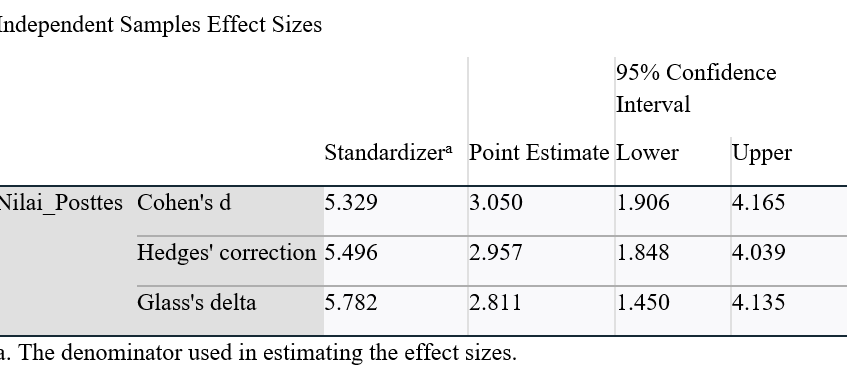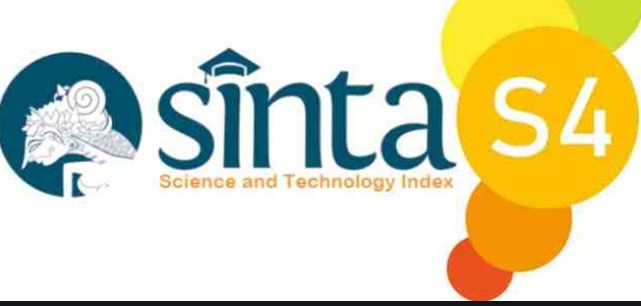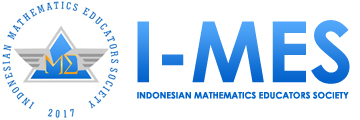THE IMPACT OF THE MONTESSORI METHOD ON EARLY CHILDHOOD COUNTING SKILLS
Keywords:
Montessori method: early childhood education: counting skillsAbstract
This study examines the impact of the Montessori method on early childhood numeracy skills, specifically focusing on counting, number comprehension, and classification. A quasi-experimental design was over a 2-week period, the children participated in three sessions per week. Data were collected using pretest and posttest measurements, and statistical analyses, including t-tests and effect size calculations, were performed to evaluate the results. The findings reveal a significant improvement in the counting skills of children in the Montessori group compared to the control group, with a very large effect size (Cohen's d = 3.050). The Montessori method not only enhanced children's mathematical abilities but also contributed positively to their psychological development, reducing anxiety and increasing self-confidence. This study underscores the effectiveness of hands-on, experiential learning environments in supporting both cognitive and emotional growth in young children.
Downloads
References
Aisya, A. R., Widia Winata, & Happy Indira Dewi. (2022). Fenomena Implementasi MOntessori Sebagai Media Pembelajaran Kreatif Untuk Anak Pra Sekolah. Jurnal Instruksional, 3(2), 97–116.
Arikunto, S. (2019). Prosedur Penelitian. Rineka cipta.
Basargekar, A., & Lillard, A. S. (2021). Math achievement outcomes associated with Montessori education. Early Child Development and Care, 191(7–8), 1207–1218. https://doi.org/10.1080/03004430.2020.1860955
Berk, L. E. (2013). Child Development. Pearson Education.
Damayanti, E. (2019). Meningkatkan Kemandirian Anak melalui Pembelajaran Metode Montessori. Jurnal Obsesi : Jurnal Pendidikan Anak Usia Dini, 4(1), 463. https://doi.org/10.31004/obsesi.v4i1.333
Evans, R., & Saracho, O. N. (2021). The Influence of Theorists and Pioneers on Early Childhood Education. Routledge. https://doi.org/10.4324/9781003120216
Gentaz, E., & Richard, S. (2022). The Behavioral Effects of Montessori Pedagogy on Children’s Psychological Development and School Learning. Children, 9(2), 133. https://doi.org/10.3390/children9020133
Gerker, H. (2024). Rediscovering the Child. Journal of Montessori Research, 10(2). https://doi.org/10.17161/jomr.v10i2.23052
Kamii, C., & DeVries, R. (1993). Montessori Life. In Physical Knowledge in Early Childhood (pp. 16–19). Englewood Cliffs, N.J.
Kamil, N., & Asriyani, S. (2023). ANALISIS PENERAPAN METODE MONTESSORI PADA ASPEK KEMANDIRIAN ANAK MELALUI KEGIATAN PEMBELAJARAN PRACTICAL LIFE. Jurnal Buah Hati, 10(1), 1–15. https://doi.org/10.46244/buahhati.v10i1.2098
Laski, E. V., Jor’dan, J. R., Daoust, C., & Murray, A. K. (2015). What Makes Mathematics Manipulatives Effective? Lessons From Cognitive Science and Montessori Education. SAGE Open, 5(2). https://doi.org/10.1177/2158244015589588
Lillard, A. S. (2021). Montessori: The Science Behind the Genius. Oxford University Press.
Lillard, A. S., Heise, M. J., Richey, E. M., Tong, X., Hart, A., & Bray, P. M. (2017). Montessori Preschool Elevates and Equalizes Child Outcomes: A Longitudinal Study. Frontiers in Psychology, 8. https://doi.org/10.3389/fpsyg.2017.01783
Meylani, R. (2024). Mathematical Thinking and Learning in Early Childhood: A Consolidated Qualitative Synthesis of Cutting-Edge Research Literature. Journal of Qualitative Research in Education, 40, 82–127. https://doi.org/10.14689/enad.40.1966
Milinković, J., & Bogavac, D. (2011). MONTESSORI METHOD AS A BASIS FOR INTEGRATED MATHEMATICS LEARNING. Metodički Obzori/Methodological Horizons, 6(1), 135–143. https://doi.org/10.32728/mo.06.1.2011.11
Nisa, T. F., Ariyanto, F. L. T., & Asyhar, A. H. (2019). Montessori learning: understanding the concept of early childhood mathematics. Journal of Physics: Conference Series, 1211, 012094. https://doi.org/10.1088/1742-6596/1211/1/012094
Nur Afifah, D. (2020). Membedah Pemikiran Maria Montessori Pada Pendidikan Anak Usia Dini. Pemikiran Maria Montassori Pada Pendidikan Anak Usia Dini, 6, 1–12. https://scholar.google.com/scholar?hl=id&as_sdt=0%2C5&q=pemikiran+maria+montessori+&btnG=#d=gs_qabs&t=1670341198049&u=%23p%3DQqYuG5NXSmcJ
Nurhayati, F. (2022). Dampak Kegiatan Bermain Peran Dalam Meningkatkan Kemampuan Berhitung Anak Usia 5-6 Tahun. Aulad: Journal on Early Childhood, 5(1), 15–21. https://doi.org/10.31004/aulad.v5i1.212
Ongoren, S., & Yazlik, D. O. (2019). Investigation of Mathematical Concept Skills of Children Trained with Montessori Approach and MoNE Pre-school Education Program. European Journal of Educational Research, volume-8-2(volume8-issue1.html), 9–19. https://doi.org/10.12973/eu-jer.8.1.9
Randolph, J. J., Bryson, A., Menon, L., Henderson, D. K., Kureethara Manuel, A., Michaels, S., Rosenstein, debra leigh walls, McPherson, W., O’Grady, R., & Lillard, A. S. (2023). Montessori education’s impact on academic and nonacademic outcomes: A systematic review. Campbell Systematic Reviews, 19(3). https://doi.org/10.1002/cl2.1330
Rathunde, K. (2001). Montessori Education and Optimal Experience: A framework for new research. NAMTA Journal, 26(1), 11–43.
Rathunde, K. (2014). Understanding Optimal School Experience: Contributions from Montessori Education. Teachers College Record: The Voice of Scholarship in Education, 116(13), 253–274. https://doi.org/10.1177/016146811411601317
Robinson, K. M., & Osana, H. P. (2019). Mathematical Learning and Cognition in Early Childhood. Mathematical Learning and Cognition in Early Childhood. https://doi.org/10.1007/978-3-030-12895-1
Siaviki, A., Tympa, E., Karavida, V., & Fykaris, I. (2025). The impact of Montessori method on early mathematical competence of young children. Journal of Education and Learning (EduLearn), 19(1), 257–264. https://doi.org/10.11591/edulearn.v19i1.21364
Sinthia, V. (2024). Pengaruh Penggunaan Golden Beads dalam Meningkatkan Kemampuan Berhitung Anak Usia Dini. Universitas Pendidikan Indonesia.
Sugiyono. (2020). Metode Penelitian Kuantitatif, Kualitatif dan R&D. Alfabeta.

Downloads
Published
How to Cite
Issue
Section
Citation Check
License
Copyright (c) 2025 Agung Kaisar Siregar, Dwi Maulida Sari, Efrida Mandasari Dalimunthe

This work is licensed under a Creative Commons Attribution-NonCommercial-ShareAlike 4.0 International License.











